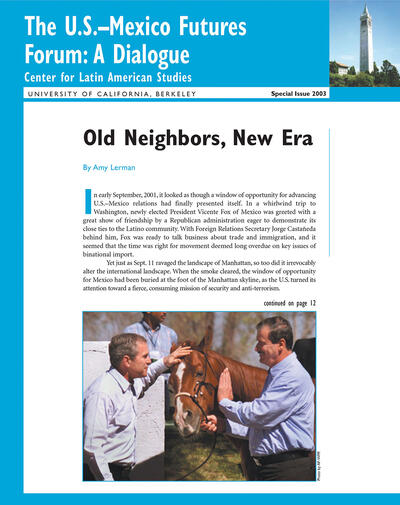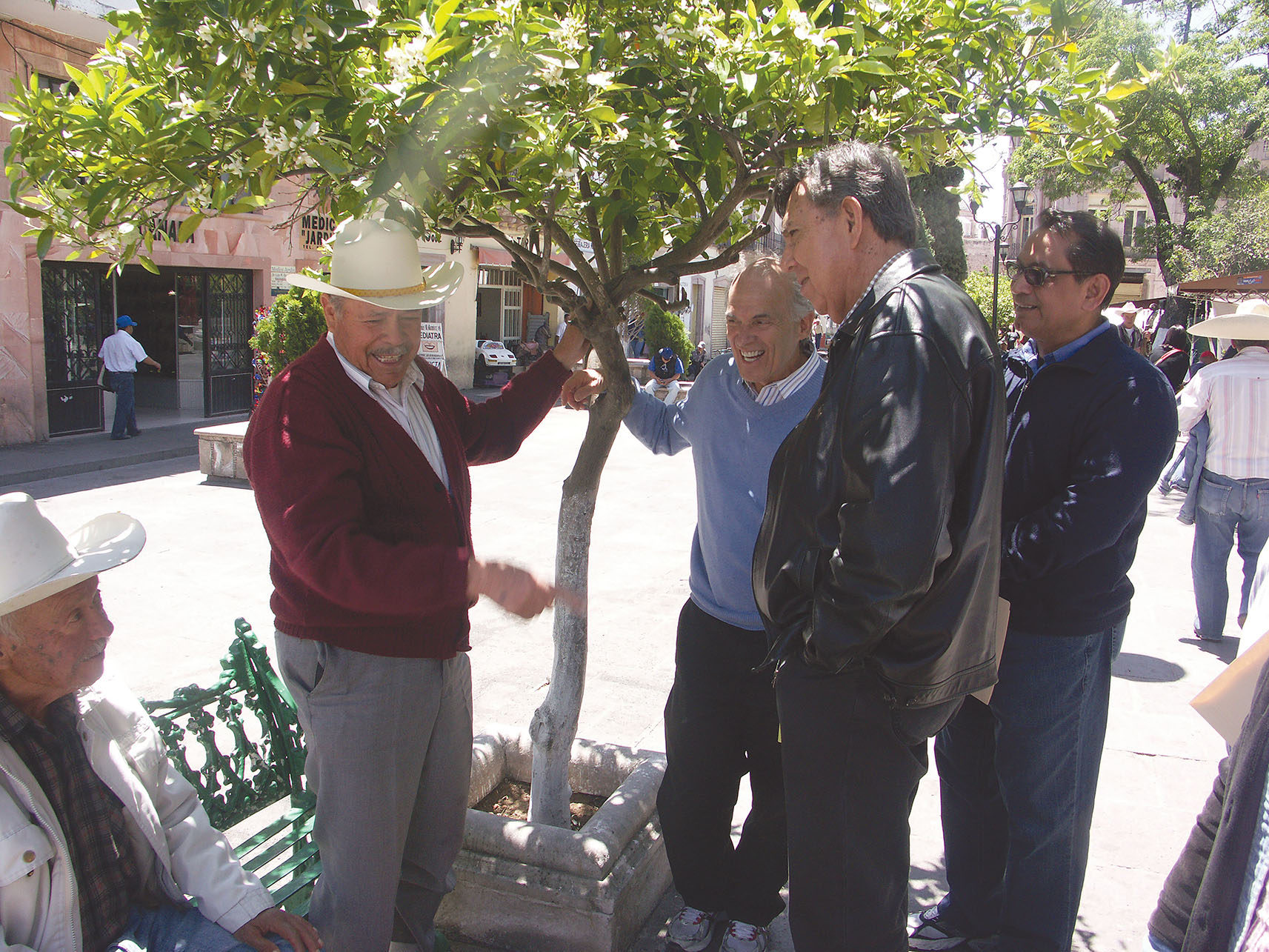These are deeply troubled, unpredictable times for the United States and Mexico. Yet, whatever the state of the U.S.–Mexico relationship, both countries are inextricably linked by a 2,000-mile border, a shared history, intertwined economies and cultures, and families that span frontiers. We have become “overlapping societies,” in the words of Adolfo Aguilar Zinser, who served as Mexico’s Ambassador to the United Nations and presided over the UN Security Council during the lead-up to the Iraq War at the beginning of the 21st century.
Almost two decades ago in early 2001, the U.S.–Mexico Futures Forum was conceived at a moment of optimism, concerned with improving the sometimes-rocky relationship between the two countries. “In early September 2001, it looked as though a window of opportunity for advancing U.S.–Mexico relations had finally presented itself,” wrote Amy Lerman — then a Ph.D. student and now a professor at UC Berkeley — in a special issue of the forerunner to this magazine. “In a whirlwind trip to Washington,” she continued, “newly elected President Vicente Fox of Mexico was greeted with a great show of friendship by a Republican administration eager to demonstrate its close ties to the Latino community.” During a remarkable several days in Washington, “Fox was ready to talk business about trade and immigration, and it seemed that the time was right for movement deemed long overdue on key issues of binational import.”

The moment of possibility was real, but short-lived. Three days after Vicente Fox’s plane took off from Washington, D.C., the U.S. was plunged into trauma and tragedy. “Yet just as September 11 ravaged the landscape of Manhattan, so too did it irrevocably alter the international landscape,” Lerman said. “When the smoke cleared, the window of opportunity for Mexico had been buried at the foot of the Manhattan skyline, as the U.S. turned its attention toward a fierce, consuming mission of security and anti-terrorism.”
In late August 2017, the Ninth U.S.–Mexico Futures Forum took place in Tiburon, California, 15 years after that first gathering in Cuernavaca. It was co-chaired by Rafael Fernández de Castro, Professor of International Relations at ITAM and Director of the Center for U.S.-Mexico Studies at the University of California, San Diego, and myself and supported by the Ford Foundation. Some of the original participants attended this most recent Forum, but there were also many newcomers. The gathering was defined by three themes: Climate Change: Existential Threats in a Time of Denial; Security, Violence, and Migration; and NAFTA, Wages, and Development. Initially, the themes appeared very different, but they were revealed as intersecting in critical ways. Both climate change and low wages, for example, propel migration.Fourteen months later, the first U.S.–Mexico Futures Forum took place in November 2002 in Cuernavaca, Mexico, during a much grimmer time. The dark clouds that hung over the U.S.–Mexico relationship, as it turned out, made the gathering more important than ever. The Forum began as a partnership between the Center for Latin American Studies (CLAS) at UC Berkeley and the International Studies Department at the Instituto Technológico Autónomo de Mexico (ITAM) and was funded by the Hewlett Foundation. The idea was to bring together, on a regular basis, a diverse group of people — 10 or so from each country — to provide new perspectives on critical issues and move policy ideas as well as research in a more positive direction. Participants included governors and academics, public intellectuals and social movement leaders, entrepreneurs and journalists, among others. They were not the “usual suspects” — some had extensive experience in engaging the U.S.–Mexico relationship, while others were bringing fresh outlooks; they differed politically, at times sharply, but all had open minds. Three or so broad themes would organize the discussions at the meeting every year, and topics would range from issues heading the political agenda in both countries to concerns that were receiving far less attention.
Our opening article reports on these discussions and analyzes the key issues that were raised as well as the ways in which they intersect.
Harley Shaiken is the Class of 1930 Professor of Letters and Science, a professor in the Graduate School of Education and the Department of Geography, and the Chair of the Center for Latin American Studies at UC Berkeley.

